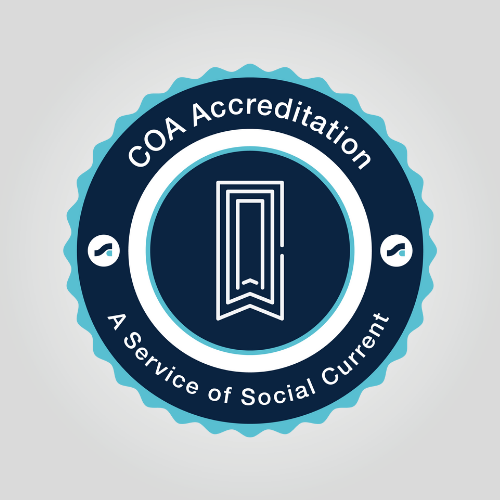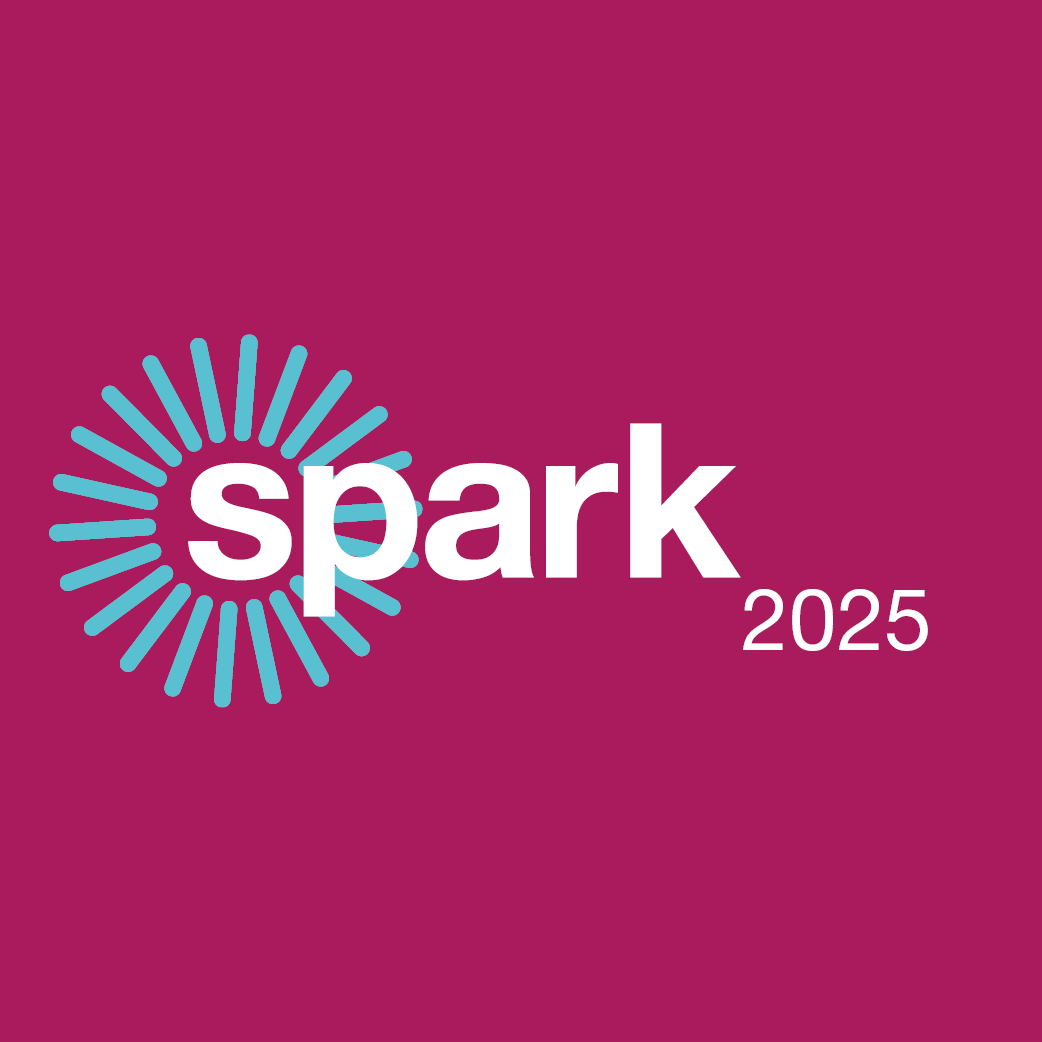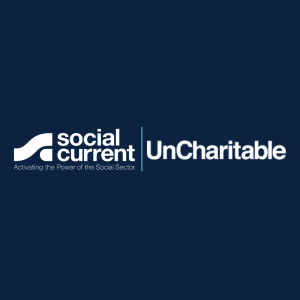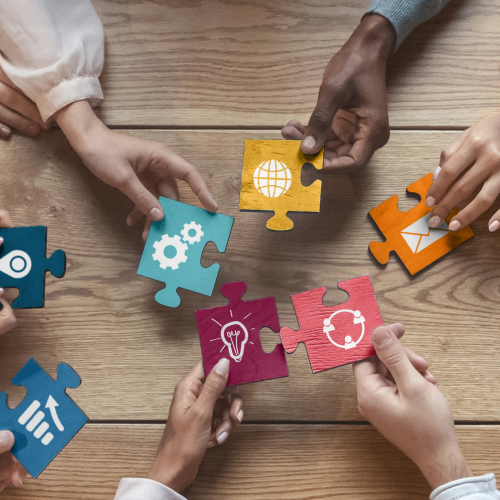Social Current, in partnership with the Hathaway Center for Excellence, is proud to offer the first in a series of APA and CAMFT continuing education eligible courses for practitioners working in and with the child welfare and therapeutic systems. The course is now available for on-demand registration and completion: Working with LGBTQ Youth and Young Adults.
This self-guided course is designed for front-line staff who are working with LGBTQ youth and young adults in community or residential settings. It focuses on how to:
- Intervene and reduce barriers to improve health outcomes
- Understand coming out experiences and the impact of rejecting and accepting behaviors
The course is eligible for 1 CE, as the Hathaway Center for Excellence is a continuing education vendor of the American Psychological Association (APA), or 1 CE, as the Hathaway Center for Excellence is a continuing education vendor of the California Association of Marriage and Family Therapists. Course participants receive their CE after completing all quizzes, post-tests, and evaluations associated with the course.
The cost is $75 per person. Organizations who are interested in sending five or more staff to this training should contact the Social Current Organizational Learning Team.
Enroll in this course online, or browse the Social Current learning catalog.
About the Hathaway Center for Excellence
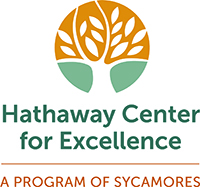
The Hathaway Center for Excellence (HCFE) is the esteemed research and training program of Sycamores. HCFE enables Sycamores to collect and share evidence-based research discoveries to clinical professionals across the U.S. and beyond, ensuring findings help to inspire informed care to all consumers in the therapeutic field.
Contact HCFE with questions about the content of this course.
About the Social Current Learning Exchange
Organizations that have developed courses related to social sector topics can gain exposure and revenue by sharing them through the Social Current Learning Exchange.
Social Current can assist you in converting your training to an online, on-demand course and offer it publicly through our learning catalog. We also can assist in promoting your course to our national network of social sector professionals.
If your organization is interested in making learning available via the Social Current Learning Exchange, contact the Social Current Organizational Learning Team.
September 20, 2022 @ 12:00 pm – 4:00 pm EDT
- Workshop: $650
- Intercultural Development Inventory® (IDI®): $288
Workshop Sessions
Choose one of four opportunities to participate in this workshop in 2022:
March Session: March 1, 8, 15
June Session: June 9, 16, 23
September/October Session: Sept. 20, Sept. 27, Oct. 4
November Session: Nov. 1, 8, 15
Given the continued emergence of an interconnected society, an ever-evolving pandemic, calls for racial and social justice along with heightened polarization across many fronts, building organizational capacity for advancing equity, diversity, and inclusion is more critical than ever. The need for leaders across sectors, and especially within the social sector, to understand and engage the current environment is essential in building an equitable society for all.
This journey begins by ensuring all people feel valued at work. It mandates the co-creation of an inclusive workforce that can foster the development of a healthy, productive, and peaceful society in which all people can participate and reach their full potential. The journey continues with building a culture that supports equity for long-term sustainable change and engaging the inequitable systems, which marginalizes, disconnects, and dismisses individuals from having access and full participation in reaching economic mobility and prosperity.
During this three-part virtual workshop presented by Social Current, participants will explore their relationships with equity, diversity, and inclusion (EDI) in a safe environment and make progress on developing an EDI action plan for their organizations.
Because advancing EDI requires more than just basic knowledge and the will to improve, presenters will help participants understand their own biases and the role of historical discrimination, non-inclusive behavioral actions, and culture in creating an unjust society.
The workshop will include presentations of valuable information, facilitated discussions, reflection opportunities, and dedicated planning time. In addition to learning about core concepts, participants will put ideas into action with facilitated planning time. Everyone will begin developing action plans for their organizations or build on existing plans. Organizations are encouraged to send multiple employees to build or work on current EDI plans for advancement.
About the Intercultural Development Inventory® (IDI®)
To be equipped to advance equity within your community, organization, and beyond, it is essential to also understand and advance your personal journey. Enhance your participation in this workshop with the Intercultural Development Inventory® (IDI®), which provides valuable and actionable information about your own mindset/skillset toward cultural difference and commonality. The IDI®, a 50-item online questionnaire, has been developed and tested using rigorous cross-culturally validated psychometric protocols with over 220,000 respondents from a wide range of cultural groups and countries.
Add this assessment to your workshop registration to receive practical and in-depth information. Individuals will receive a customized IDI® Individual Profile Report and participate in a 60-minute one-on-one debrief session with Social Current Director of Evaluation and Research Phyllis Richards to discuss their results and develop a plan to meet their personal intercultural development goals. Richards is a qualified administrator of the IDI® and has more than a decade of experience in working collaboratively to address systemic racism and improve cultural competency.
Workshop Goals
- How EDI has changed over time within the U.S. as a result of legislation
- Understand the skills needed to advance your EDI personal journey
- How biases, racism, and incivility are barriers to building an EDI-enriched workplace culture
- Understand their organization’s phase of EDI maturity, and how to move to the next phase
- A multi-faceted approach for co-creating an organizational culture that fosters EDI
- Options for addressing critical current issues
- How to structure an organizational plan to advance EDI using results-based strategies
- Create the skeleton plan with facilitator support
Who Should Participate
- Staff responsible for diversity, equity, and inclusion
- Human resources professionals
- Organizational development professionals
- Executives
- Board members
- Executive search firms
Presenters
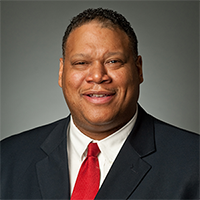
Undraye Howard, PhD
Senior Director and Special Advisor to the CEO for Equity, Diversity, Inclusion and Engagement
Social Current
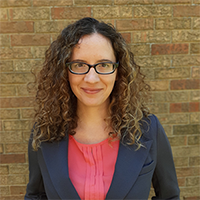
Jerica Broeckling, M.A.
Engagement Partner
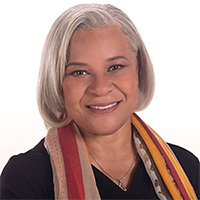
Sheryl White, PhD
Vice President of Training and Organizational Development
Neighborhood House Association
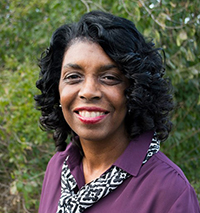
Phyllis Richards, M.A., M.S.
Director of Equity, Diversity, Inclusion and Research
Social Current
Related Events
March 1, 2022 @ 12:00 pm – 4:00 pm UTC
- Workshop: $650
- Intercultural Development Inventory® (IDI®): $288
Workshop Sessions
March Session: March 1, 8, 15
June Session: June 9, 16, 23
November Session: Nov. 1, 8, 15
Given the continued emergence of an interconnected society, an ever-evolving pandemic, calls for racial and social justice, and heightened polarization across many fronts, building organizational capacity for advancing equity, diversity, and inclusion is more critical than ever. The need for leaders across sectors, and especially within the social sector, to understand and engage the current environment is essential in building an equitable society for all.
This journey begins by ensuring all people feel valued at work. It mandates the co-creation of an inclusive workforce that can foster the development of a healthy, productive, and peaceful society in which all people can participate and reach their full potential. The journey continues with building a culture that supports equity for long-term sustainable change and engaging the inequitable systems, which marginalizes, disconnects, and dismisses individuals from having access and full participation in reaching economic mobility and prosperity.
During this three-part virtual workshop presented by Social Current, participants will explore their relationships with equity, diversity, and inclusion (EDI) in a safe environment and make progress on developing an EDI action plan for their organizations.
Because advancing EDI requires more than just basic knowledge and the will to improve, presenters will help participants understand their own biases and the role of historical discrimination, non-inclusive behavioral actions, and culture in creating an unjust society.
The workshop will include presentations of valuable information, facilitated discussions, reflection opportunities, and dedicated planning time. In addition to learning about core concepts, participants will put ideas into action with facilitated planning time. Everyone will begin developing action plans for their organizations or build on existing plans. Organizations are encouraged to send multiple employees to build or work on current EDI plans for advancement.
About the Intercultural Development Inventory® (IDI®)
To be equipped to advance equity within your community, organization, and beyond, it is essential to also understand and advance your personal journey. Enhance your participation in this workshop with the Intercultural Development Inventory® (IDI®), which provides valuable and actionable information about your own mindset/skillset toward cultural difference and commonality. The IDI®, a 50-item online questionnaire, has been developed and tested using rigorous cross-culturally validated psychometric protocols with over 220,000 respondents from a wide range of cultural groups and countries.
Add this assessment to your workshop registration to receive practical and in-depth information. Individuals will receive a customized IDI® Individual Profile Report and participate in a 60-minute one-on-one debrief session with Social Current Director of Evaluation and Research Phyllis Richards to discuss their results and develop a plan to meet their personal intercultural development goals. Richards is a qualified administrator of the IDI® and has more than a decade of experience in working collaboratively to address systemic racism and improve cultural competency.
Workshop Goals
- How EDI has changed over time within the U.S. as a result of legislation
- Understand the skills needed to advance your EDI personal journey
- How biases, racism, and incivility are barriers to building an EDI-enriched workplace culture
- Understand their organization’s phase of EDI maturity, and how to move to the next phase
- A multi-faceted approach for co-creating an organizational culture that fosters EDI
- Options for addressing critical current issues
- How to structure an organizational plan to advance EDI using results-based strategies
- Create the skeleton plan with facilitator support
Who Should Participate
- Staff responsible for diversity, equity, and inclusion
- Human resources professionals
- Organizational development professionals
- Executives
- Board members
- Executive search firms
Presenters

Undraye Howard, PhD
Senior Director and Special Advisor to the CEO for Equity, Diversity, Inclusion and Engagement
Social Current

Jerica Broeckling, M.A.
Engagement Partner

Sheryl White, PhD
Vice President of Training and Organizational Development
Neighborhood House Association

Phyllis Richards, M.A., M.S.
Director of Equity, Diversity, Inclusion and Research
Social Current
Related Events
June 9, 2022 @ 12:00 pm – 4:00 pm UTC
- Workshop: $650
- Intercultural Development Inventory® (IDI®): $288
Workshop Sessions
March Session: March 1, 8, 15
June Session: June 9, 16, 23
November Session: Nov. 1, 8, 15
Given the continued emergence of an interconnected society, an ever-evolving pandemic, calls for racial and social justice, and heightened polarization across many fronts, building organizational capacity for advancing equity, diversity, and inclusion is more critical than ever. The need for leaders across sectors, and especially within the social sector, to understand and engage the current environment is essential in building an equitable society for all.
This journey begins by ensuring all people feel valued at work. It mandates the co-creation of an inclusive workforce that can foster the development of a healthy, productive, and peaceful society in which all people can participate and reach their full potential. The journey continues with building a culture that supports equity for long-term sustainable change and engaging the inequitable systems, which marginalizes, disconnects, and dismisses individuals from having access and full participation in reaching economic mobility and prosperity.
During this three-part virtual workshop presented by Social Current, participants will explore their relationships with equity, diversity, and inclusion (EDI) in a safe environment and make progress on developing an EDI action plan for their organizations.
Because advancing EDI requires more than just basic knowledge and the will to improve, presenters will help participants understand their own biases and the role of historical discrimination, non-inclusive behavioral actions, and culture in creating an unjust society.
The workshop will include presentations of valuable information, facilitated discussions, reflection opportunities, and dedicated planning time. In addition to learning about core concepts, participants will put ideas into action with facilitated planning time. Everyone will begin developing action plans for their organizations or build on existing plans. Organizations are encouraged to send multiple employees to build or work on current EDI plans for advancement.
About the Intercultural Development Inventory® (IDI®)
To be equipped to advance equity within your community, organization, and beyond, it is essential to also understand and advance your personal journey. Enhance your participation in this workshop with the Intercultural Development Inventory® (IDI®), which provides valuable and actionable information about your own mindset/skillset toward cultural difference and commonality. The IDI®, a 50-item online questionnaire, has been developed and tested using rigorous cross-culturally validated psychometric protocols with over 220,000 respondents from a wide range of cultural groups and countries.
Add this assessment to your workshop registration to receive practical and in-depth information. Individuals will receive a customized IDI® Individual Profile Report and participate in a 60-minute one-on-one debrief session with Social Current Director of Evaluation and Research Phyllis Richards to discuss their results and develop a plan to meet their personal intercultural development goals. Richards is a qualified administrator of the IDI® and has more than a decade of experience in working collaboratively to address systemic racism and improve cultural competency.
Workshop Goals
- How EDI has changed over time within the U.S. as a result of legislation
- Understand the skills needed to advance your EDI personal journey
- How biases, racism, and incivility are barriers to building an EDI-enriched workplace culture
- Understand their organization’s phase of EDI maturity, and how to move to the next phase
- A multi-faceted approach for co-creating an organizational culture that fosters EDI
- Options for addressing critical current issues
- How to structure an organizational plan to advance EDI using results-based strategies
- Create the skeleton plan with facilitator support
Who Should Participate
- Staff responsible for diversity, equity, and inclusion
- Human resources professionals
- Organizational development professionals
- Executives
- Board members
- Executive search firms
Presenters

Undraye Howard, PhD
Senior Director and Special Advisor to the CEO for Equity, Diversity, Inclusion and Engagement
Social Current

Jerica Broeckling, M.A.
Engagement Partner

Sheryl White, PhD
Vice President of Training and Organizational Development
Neighborhood House Association

Phyllis Richards, M.A., M.S.
Director of Equity, Diversity, Inclusion and Research
Social Current
Related Events
February 4, 2022 @ 1:00 pm – 4:00 pm EDT
Three CEU Credits (Social Work)
This training provides an overview of gender-affirming care and transitioning (socially, medically, and legally). These practices serve to increase safety, access to resources, and mental/emotional well-being for gender diverse people. Whether a medical professional or someone who is interested in advocating for the LGBTQ+ community, participants will leave with concrete behaviors which can be implemented in a variety of roles when serving individuals with diverse gender identity and expression.
This training series is interactive, and participants are asked to be on camera and able to interact with other participants through video, audio, and chat periodically. While this is an expectation of the training, we understand that there can be barriers to this type of involvement. Reach out to the trainers ahead of time at for more information or accommodations.
Objectives
- Why we are discussing SOGIE (statistics, evidence-based practices, personal narratives)
- Introduction to gender-affirming care (medically, socially, and legally) as well as hearing directly from youth who have accessed gender-affirming care at the Ruth Ellis Center and the medical and behavioral health professionals who practice this work
- Address common assumptions/myths related to gender diversity and gender-affirming care
Who Should Participate
- Professionals who work with children, youth, young adults, and/or families who have previous introductory knowledge on sexual orientation, gender identity, and expression
- Participants can be individuals who directly with others or be involved in supervision, management, and leadership
- Professionals who work in integrated health would especially benefit from this training, but the content is applicable in many areas of work (case managers, social workers, foster parents, case supervisors, program staff, program managers, program directors, quality assurance)
Courses in this Series
SOGIE 101
Tuesday, Feb. 1 from 1-4 p.m. ET
LGBTQ Visibility and Housing in Systems of Care
Wednesday, Feb. 2 from 1-4 p.m. ET
Family Support with LGBTQ Children
Thursday, Feb. 3 from 1-4 p.m. ET
Gender Affirming Care
Friday, Feb. 4 from 1-4 p.m. ET
About the Training Series
Ruth Ellis Institute has developed the following training content through researching how adult practitioners, government health and human service employees, and staff at community-based organizations leverage their existing experience to integrate more affirming practices for lesbian, gay, bisexual, transgender, and questioning (LGBTQ) youth.
The development of this curriculum is embedded within a LGBTQ-specific direct service organization, ensuring that on-the-ground implementation is informing training content. Ruth Ellis’ model connects:
- Youth and their families lived experience
- Direct practice
- Research and evaluation
- Coaching and consulting
- Policy and regulations
Content in Gender-Affirming Care has been developed at the Ruth Ellis Center in partnership with the University of Michigan and Henry Ford Health System. Centering the lived experience of Black and Brown people who are transgender and non-binary, the framing of the training objectives was developed through two focus groups by and with the community. Ruth Ellis Institute produced and developed a film which anchors the content through featuring wisdom from Black and Brown transgender and non-binary individuals. Participants will leave with urgent recommendations for all agencies who serve youth, especially in integrated health care.
Trainers
Angelika Lewis (she/her/hers)
Education and Evaluation Coordinator
Ruth Ellis Center
Jessie Fullenkamp (she/her/hers), LMSW
Education and Evaluation Director
Ruth Ellis Center
Related Events
February 3, 2022 @ 1:00 pm – 4:00 pm EDT
Three CEU Credits (Social Work)
This training provides an overview of gender-affirming care and transitioning (socially, medically, and legally). These practices serve to increase safety, access to resources, and mental/emotional well-being for gender diverse people. Whether a medical professional or someone who is interested in advocating for the LGBTQ+ community, participants will leave with concrete behaviors which can be implemented in a variety of roles when serving individuals with diverse gender identity and expression.
This training series is interactive, and participants are asked to be on camera and able to interact with other participants through video, audio, and chat periodically. While this is an expectation of the training, we understand that there can be barriers to this type of involvement. Reach out to the trainers ahead of time at for more information or accommodations.
Objectives
- Why we are discussing SOGIE (statistics, evidence-based practices, personal narratives)
- Introduction to gender-affirming care (medically, socially, and legally) as well as hearing directly from youth who have accessed gender-affirming care at the Ruth Ellis Center and the medical and behavioral health professionals who practice this work
- Address common assumptions/myths related to gender diversity and gender-affirming care
Who Should Participate
- Professionals who work with children, youth, young adults, and/or families who have previous introductory knowledge on sexual orientation, gender identity, and expression
- Participants can be individuals who directly with others or be involved in supervision, management, and leadership
- Professionals who work in integrated health would especially benefit from this training, but the content is applicable in many areas of work (case managers, social workers, foster parents, case supervisors, program staff, program managers, program directors, quality assurance)
Courses in this Series
SOGIE 101
Tuesday, Feb. 1 from 1-4 p.m. ET
LGBTQ Visibility and Housing in Systems of Care
Wednesday, Feb. 2 from 1-4 p.m. ET
Family Support with LGBTQ Children
Thursday, Feb. 3 from 1-4 p.m. ET
Gender Affirming Care
Friday, Feb. 4 from 1-4 p.m. ET
About the Training Series
Ruth Ellis Institute has developed the following training content through researching how adult practitioners, government health and human service employees, and staff at community-based organizations leverage their existing experience to integrate more affirming practices for lesbian, gay, bisexual, transgender, and questioning (LGBTQ) youth.
The development of this curriculum is embedded within a LGBTQ-specific direct service organization, ensuring that on-the-ground implementation is informing training content. Ruth Ellis’ model connects:
- Youth and their families lived experience
- Direct practice
- Research and evaluation
- Coaching and consulting
- Policy and regulations
Content in Gender-Affirming Care has been developed at the Ruth Ellis Center in partnership with the University of Michigan and Henry Ford Health System. Centering the lived experience of Black and Brown people who are transgender and non-binary, the framing of the training objectives was developed through two focus groups by and with the community. Ruth Ellis Institute produced and developed a film which anchors the content through featuring wisdom from Black and Brown transgender and non-binary individuals. Participants will leave with urgent recommendations for all agencies who serve youth, especially in integrated health care.
Trainers
Angelika Lewis (she/her/hers)
Education and Evaluation Coordinator
Ruth Ellis Center
Jessie Fullenkamp (she/her/hers), LMSW
Education and Evaluation Director
Ruth Ellis Center
Related Events
February 2, 2022 @ 1:00 pm – 4:00 pm EDT
Three CEU Credits (Social Work)
This training provides an overview of gender-affirming care and transitioning (socially, medically, and legally). These practices serve to increase safety, access to resources, and mental/emotional well-being for gender diverse people. Whether a medical professional or someone who is interested in advocating for the LGBTQ+ community, participants will leave with concrete behaviors which can be implemented in a variety of roles when serving individuals with diverse gender identity and expression.
This training series is interactive, and participants are asked to be on camera and able to interact with other participants through video, audio, and chat periodically. While this is an expectation of the training, we understand that there can be barriers to this type of involvement. Reach out to the trainers ahead of time at for more information or accommodations.
Objectives
- Why we are discussing SOGIE (statistics, evidence-based practices, personal narratives)
- Introduction to gender-affirming care (medically, socially, and legally) as well as hearing directly from youth who have accessed gender-affirming care at the Ruth Ellis Center and the medical and behavioral health professionals who practice this work
- Address common assumptions/myths related to gender diversity and gender-affirming care
Who Should Participate
- Professionals who work with children, youth, young adults, and/or families who have previous introductory knowledge on sexual orientation, gender identity, and expression
- Participants can be individuals who directly with others or be involved in supervision, management, and leadership
- Professionals who work in integrated health would especially benefit from this training, but the content is applicable in many areas of work (case managers, social workers, foster parents, case supervisors, program staff, program managers, program directors, quality assurance)
Courses in this Series
SOGIE 101
Tuesday, Feb. 1 from 1-4 p.m. ET
LGBTQ Visibility and Housing in Systems of Care
Wednesday, Feb. 2 from 1-4 p.m. ET
Family Support with LGBTQ Children
Thursday, Feb. 3 from 1-4 p.m. ET
Gender Affirming Care
Friday, Feb. 4 from 1-4 p.m. ET
About the Training Series
Ruth Ellis Institute has developed the following training content through researching how adult practitioners, government health and human service employees, and staff at community-based organizations leverage their existing experience to integrate more affirming practices for lesbian, gay, bisexual, transgender, and questioning (LGBTQ) youth.
The development of this curriculum is embedded within a LGBTQ-specific direct service organization, ensuring that on-the-ground implementation is informing training content. Ruth Ellis’ model connects:
- Youth and their families lived experience
- Direct practice
- Research and evaluation
- Coaching and consulting
- Policy and regulations
Content in Gender-Affirming Care has been developed at the Ruth Ellis Center in partnership with the University of Michigan and Henry Ford Health System. Centering the lived experience of Black and Brown people who are transgender and non-binary, the framing of the training objectives was developed through two focus groups by and with the community. Ruth Ellis Institute produced and developed a film which anchors the content through featuring wisdom from Black and Brown transgender and non-binary individuals. Participants will leave with urgent recommendations for all agencies who serve youth, especially in integrated health care.
Trainers
Angelika Lewis (she/her/hers)
Education and Evaluation Coordinator
Ruth Ellis Center
Jessie Fullenkamp (she/her/hers), LMSW
Education and Evaluation Director
Ruth Ellis Center
Related Events
February 1, 2022 @ 1:00 pm – 4:00 pm EDT
Three CEU Credits (Social Work)
This training provides an overview of gender-affirming care and transitioning (socially, medically, and legally). These practices serve to increase safety, access to resources, and mental/emotional well-being for gender diverse people. Whether a medical professional or someone who is interested in advocating for the LGBTQ+ community, participants will leave with concrete behaviors which can be implemented in a variety of roles when serving individuals with diverse gender identity and expression.
This training series is interactive, and participants are asked to be on camera and able to interact with other participants through video, audio, and chat periodically. While this is an expectation of the training, we understand that there can be barriers to this type of involvement. Reach out to the trainers ahead of time at for more information or accommodations.
Objectives
- Why we are discussing SOGIE (statistics, evidence-based practices, personal narratives)
- Introduction to gender-affirming care (medically, socially, and legally) as well as hearing directly from youth who have accessed gender-affirming care at the Ruth Ellis Center and the medical and behavioral health professionals who practice this work
- Address common assumptions/myths related to gender diversity and gender-affirming care
Who Should Participate
- Professionals who work with children, youth, young adults, and/or families who have previous introductory knowledge on sexual orientation, gender identity, and expression
- Participants can be individuals who directly with others or be involved in supervision, management, and leadership
- Professionals who work in integrated health would especially benefit from this training, but the content is applicable in many areas of work (case managers, social workers, foster parents, case supervisors, program staff, program managers, program directors, quality assurance)
Courses in this Series
SOGIE 101
Tuesday, Feb. 1 from 1-4 p.m. ET
LGBTQ Visibility and Housing in Systems of Care
Wednesday, Feb. 2 from 1-4 p.m. ET
Family Support with LGBTQ Children
Thursday, Feb. 3 from 1-4 p.m. ET
Gender Affirming Care
Friday, Feb. 4 from 1-4 p.m. ET
About the Training Series
Ruth Ellis Institute has developed the following training content through researching how adult practitioners, government health and human service employees, and staff at community-based organizations leverage their existing experience to integrate more affirming practices for lesbian, gay, bisexual, transgender, and questioning (LGBTQ) youth.
The development of this curriculum is embedded within a LGBTQ-specific direct service organization, ensuring that on-the-ground implementation is informing training content. Ruth Ellis’ model connects:
- Youth and their families lived experience
- Direct practice
- Research and evaluation
- Coaching and consulting
- Policy and regulations
Content in Gender-Affirming Care has been developed at the Ruth Ellis Center in partnership with the University of Michigan and Henry Ford Health System. Centering the lived experience of Black and Brown people who are transgender and non-binary, the framing of the training objectives was developed through two focus groups by and with the community. Ruth Ellis Institute produced and developed a film which anchors the content through featuring wisdom from Black and Brown transgender and non-binary individuals. Participants will leave with urgent recommendations for all agencies who serve youth, especially in integrated health care.
Trainers
Angelika Lewis (she/her/hers)
Education and Evaluation Coordinator
Ruth Ellis Center
Jessie Fullenkamp (she/her/hers), LMSW
Education and Evaluation Director
Ruth Ellis Center
Related Events
November 16, 2021 @ 12:00 pm – 4:00 pm EST
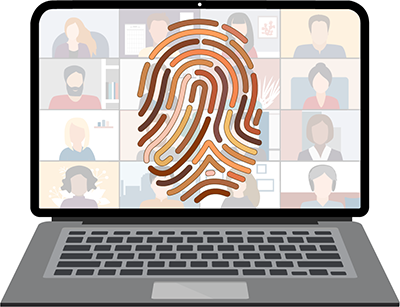
November Session: Nov. 2, 9, 16
Programming is offered each day from noon-4 p.m. ET with two short breaks.
Participation Rates
- Workshop: $650
- Intercultural Development Inventory® (IDI®): $288
Given the continued emergence of an interconnected society, a global pandemic, and protests and unrest calling for racial justice, building organizational capacity for advancing equity, diversity, and inclusion is more critical than ever. The need for leaders within social sector organizations to understand and engage the current environment is essential in building an equitable society for all.
This journey begins by ensuring all people feel valued at work. It mandates the co-creation of an inclusive workforce that can foster the development of a healthy, productive, and peaceful society in which all people can participate and reach their full potential.
During this virtual workshop presented by Social Current, participants will explore their relationships with equity, diversity, and inclusion (EDI) in a safe environment and make progress on developing an EDI action plan for their organizations.
Because advancing EDI requires more than just basic knowledge and the will to improve, presenters will help participants understand their own biases as well as the role of historical discrimination, non-inclusive behavioral actions, and culture in creating an unjust society.
The workshop will include presentations of valuable information, facilitated discussions, reflection opportunities, and dedicated planning time. In addition to learning about core concepts, participants will put ideas into action with facilitated planning time. Everyone will have the opportunity to begin developing action plans for advancing their organizations’ EDI journeys. As such, organizations are encouraged to send multiple employees that together can develop or work on current EDI plans for advancement.
About the Intercultural Development Inventory® (IDI®)
To be equipped to advance equity within your community, organization, and beyond, it is essential to also understand and advance your personal journey. Enhance your participation in this workshop with the Intercultural Development Inventory® (IDI®), which provides valuable and actionable information about your own mindset/skillset toward cultural difference and commonality. The IDI®, a 50-item online questionnaire, has been developed and tested using rigorous cross-culturally validated psychometric protocols with over 220,000 respondents from a wide range of cultural groups and countries.
Add this assessment to your workshop registration to receive practical and in-depth information. Individuals will receive a customized IDI® Individual Profile Report and participate in a 60-minute one-on-one debrief session with Alliance-COA Director of Evaluation and Research Phyllis Richards to discuss their results and develop a plan to meet their personal intercultural development goals. Richards is a qualified administrator of the IDI® and has more than a decade of experience in working collaboratively to address systemic racism and improve cultural competency.
- How EDI has changed over time within the U.S. as a result of legislation
- Understand the skills needed to advance your EDI personal journey
- How biases, racism, and incivility are barriers to building an EDI-enriched workplace culture
- Understand their organization’s phase of EDI maturity, and how to move to the next phase
- A multi-faceted approach for co-creating an organizational culture that fosters EDI
- Options for addressing critical current issues
- How to structure an organizational plan to advance EDI using results-based strategies
- Create the skeleton plan with facilitator support
- Staff responsible for diversity, equity, and inclusion
- Human resources professionals
- Organizational development professionals
- Executives
- Board members
- Executive search firms

Undraye Howard, PhD
Senior Director of Equity, Diversity, Inclusion, and Engagement, Alliance-COA

Sheryl White, PhD
Vice President of Training and Organizational Development, Neighborhood House Association

Jerica Broeckling, M.A.
Engagement Partner

Phyllis Richards, M.A., M.S.
Director of Evaluation and Research Services, Alliance-COA
Related Events
December 7, 2021 @ 12:00 pm – 1:00 pm EST

Many organizations recognize the need to lead from a deep and genuine culture of race equity. This starts with people—emerging leaders, senior leaders, board members, and more—growing individually and in their respective roles. However, it can be difficult to know where to start in advancing equity, diversity, and inclusion (EDI). Simply mandating or promoting EDI in the workplace is not enough. To realize the benefits, organizations must treat EDI as any other critical resource and commit to building the right infrastructure to support it.
Advancing EDI internally requires more than just the knowledge and will to act. Staff must also understand the multiple ways in which bias unconsciously manifests in our daily lives and working relationships. Building on brain function research and behavioral science, participants will learn about the bias traps we fall into, what causes them, and what can work to reduce and/or eliminate them.
What You’ll Take Away
- The foundations of implicit bias in brain function and culture
- Common ways that implicit bias is present in the workplace
- Self-reflection on potential biases and strategies to begin reducing them
Who Should Participate
- Organization staff
- Public policy staff
- Community advocates
Presenters

Jerica Broeckling
Engagement Partner

Phyllis Richards
Director of Equity, Diversity, and Inclusion and Research
Social Current

